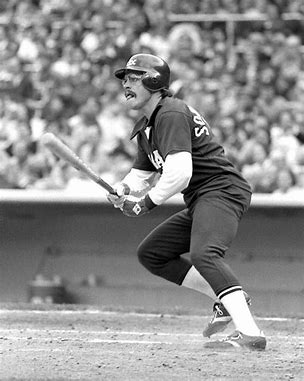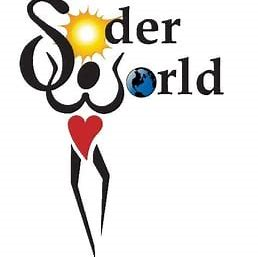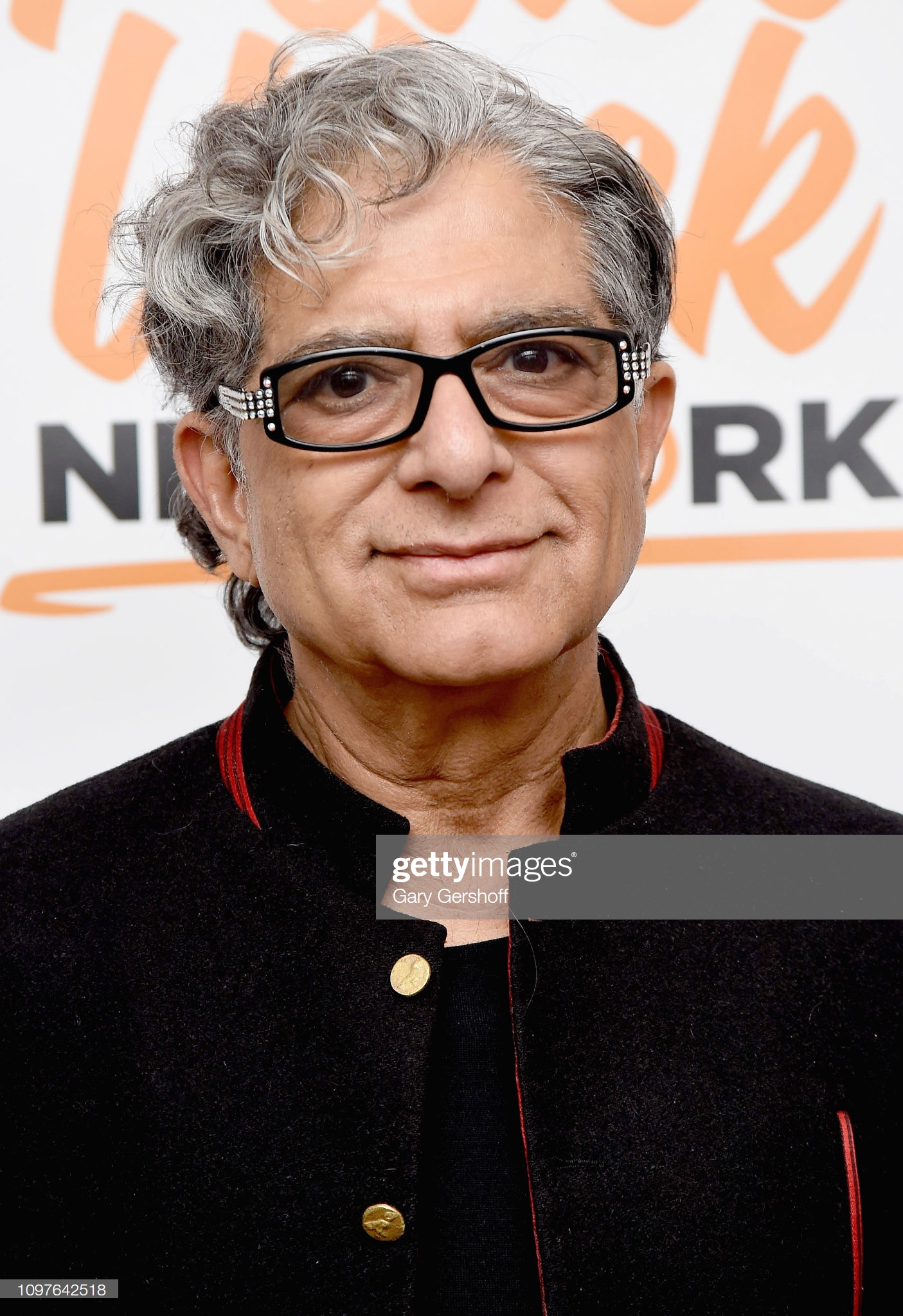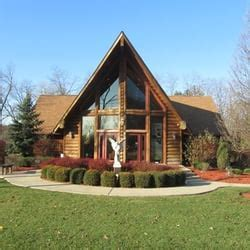Eric Soderholm played more than nine years in MLB, but his work after baseball has brought him fulfillment and inner peace – much more than he ever got playing ball. In Part II, we’ll look at his journey to the rewarding, rich life Eric lives today as cofounder of SoderWorld, a wellness center in Willowbrook, Illinois.
ES: Hey, I go to charity golf outings now, and the younger people go, “When did you  play?” It’s humbling, but it’s okay.
play?” It’s humbling, but it’s okay.
I mean, come on: play major-league baseball and get paid? I probably would have played for free. I mean, that’s quite a blessing. And the doors that it opened for me in the business world were phenomenal in the Chicagoland area.
Baseball camps, and life as a ticket broker
JH: After you retired as a player, you got into the baseball-camp business right away.
ES: The only thing I knew how to do was baseball.
JH: How did that work out for you? How many years did you end up doing the baseball camps?
ES: Three or four years, with the kids. I got hooked up with the Darien Park District. It was very popular. Did a camp with Bill Buckner; did a camp with Ron Kittle. So it was very, very popular, and I enjoyed doing it. Made a decent amount of money in a very short period of time. And then I opened up a hitting school, where I started giving private hitting lessons. I was booked pretty solid with that.
And then I got a phone call one day from somebody who said, “Hey, do you know Michael Jackson? His brothers are playing at Comiskey Park. Call down there and see if you can get us tickets, man! Let’s go.” And I was a Michael Jackson fan, so I said, “Sure!” and I called down to the PR department. They said they weren’t handling the tickets for it, but they did know a ticket broker who could sell me tickets for it. It was a sold-out event.
I said, “what’s a ticket broker?” And he explained it to me and then I went down to meet the guy and it was a big fan line. Tickets were everywhere, and money was everywhere, and people in line for the Michael Jackson tickets, and finally I asked, “hey, can anybody get in this business?” He said, “make up a business card, and I’ll help you get tickets that people who call you and want tickets, I’ll get them for you and I’ll mark them up just a little bit so you start making some profit.”
So I started realizing that I can sell four Cubs tickets and make a $50 profit, and it took me all of two minutes to do it, [compared to] I was giving hitting lessons for $50 a lesson that took me an hour.
So it just didn’t make any sense for me to continue to do hitting lessons when I was starting a business where I was going to make $50 in five minutes. I called the company Front Row Tickets, and it grew; I mean, the timing was perfect.
I opened in 1983, and the Bears went to the Super Bowl after the 1985 season. And then Michael Jordan won six championships for me in the 1990s. I mean, the money was coming in in wheelbarrows. It was just crazy.
JH: 30 years of that, right?
ES: Yeah, I did 30 years of that. But the last, probably five [years] were painful. My brothers and my family members were all working for me. I tried to keep the thing going, even though this company called StubHub all of a sudden appeared on the scene and made everybody a ticker broker! So you didn’t really need me anymore.
I could see the writing on the wall; things were falling apart. But because I had a lot of family members working for me, we probably stayed open three to four years longer than we should have. And I got tired of telling people that tickets were $200 for the Cubs — trying to justify charging that much for them. It was all about greed.
Even when I had the ticket business, my heart and soul wasn’t in it. I was done. I was just waiting for the opportunity to shut it down. And finally, we were losing about 30, 40 grand a year, and it was, “have to shut it down, boys.” I took what money we had left and we invested in SoderWorld, and now we have this magnificent facility.
SoderWorld and One Man’s Spiritual Journey
ES: I’m very, very happy, and at peace. And just really enjoying the fourth turn in my  life, on into the home stretch. I feel like I’m in my dharma (cosmic order) now, and all that other stuff was just to get me to this point. It’s exciting when you’re in your dharma.
life, on into the home stretch. I feel like I’m in my dharma (cosmic order) now, and all that other stuff was just to get me to this point. It’s exciting when you’re in your dharma.
JH: I saw a quote where you said that basically the baseball was just a platform for you to kind of springboard into the SoderWorld stuff, and that was actually more rewarding and more fulfilling to you than playing ball.
ES: It’s absolutely true. Because baseball, you know, the excitement of winning — everybody loves feeling that, so the fans could vicariously feel that through me, and the teams that I was on that were winning – especially the South Side Hit Men. And that’s very cool; no question about it. But that’s just the energy of winning.
At SoderWorld, that’s a whole different ballgame. It’s like creating a place where people could come and feel safe and work on themselves and try to improve their lives and make a better life for themselves when they start to learn what it’s all about. What it’s really about; not how many pars you got, or how big your bank account is, but how you inspire people; how you feel; how you learn to love yourself and so that you give what you have.
There’s so many healing modalities, and it’s so powerful to watch people who say, “thanks for creating this place. You gave me a safe space where I could really work on myself and let go of some stuff that I’ve been hanging onto that doesn’t serve me anymore.” I hear that daily, and it seemed to me so much more powerful than hitting a home run, and letting everybody feel winning. This is more about teaching people how to heal themselves, which is very powerful — to me, anyway.
JH: You’ve touched lives that way.
ES: Well, we all go through life experiences. You can either say, “hey, I got screwed. I got dealt a bad hand,” or you could realize, I’m the one really creating my realities. There’s not a God up there who’s going to say, “I really like that Eric Soderholm guy; I’m going to make his life fabulous. And I don’t like Jim, so I’m gonna make his life suck.” You just know, if you have any kind of conscience at all, you know that’s not the case. Then you begin to realize, maybe I do create my own reality.
Then we start to become aware of energy, and then how what you project, you get back; and then you start to learn about all that stuff and it takes you way beyond all those years of conditioning in your church. Don’t get me wrong, there’s a lot of value in all religions [because] the core of all them is love.
But the bottom line is, you’ve got to work on yourself, not them. Nobody’s not going to do it for you. You can’t fail, and you can’t get it wrong. You can only learn and evolve. And that’s all we’re doing throughout eternity is learning and evolving and constantly moving into higher dimensions and stuff.
This is stuff that’s “out there” for a lot of people, you know. Some people call it spirituality. I just call it recognizing that you’re the connection to source — to God, whatever you want to call it — and that is love.
So you are a part of that. God is being reflected through you. And I realized I was creating my own reality, and the journey was for me to find love for myself, so that I can give what I have. I can’t give what I don’t have.
So that put me on a spiritual path.
Heart-centered awareness
I’m 71 now, and it all started for me at age 52 when my daughter went to San Diego to study at The School of Healing Arts. She got a part-time job working for Deepak Chopra. And when she called me to tell me, “Oh Dad, I got a job with Deepak Chopra,” I said, “who’s Deepak Chopra?” I had no idea. Come to find out he’s a very wise spiritual teacher on the West Coast. He has written several books, and ironically the next day he’s on channel 11 PBS. I’m flipping through the channels, and boom! there he is.
I listened. I couldn’t understand what he was saying, ’cause he’s got this deep Indian accent. Something he was saying was resonating with me, and so I listened to him. I ended up buying his book called Perfect Health and bought a tape series called The Higher Self and some other stuff, and that’s what got it. I was 52 years old.

I started reading that stuff, and I became an insatiable reader and just read — read every morning at three o’clock. I’d wake up, turn on the night light, and read. I can’t tell you how many books I read over a three-year period.
And finally I just woke up one day and it just said, Seek all you want. But when this stops, the being can finally become. And so that hit me when I, when I read that, I said, you know what? I get it intellectually, but I’ve got to really commit to this. Now we went from there to the heart. And now you’re playing the game of life with a heart-centered awareness and wow! I’m telling you, when you do that, it becomes magical, man.
JH: That’s as opposed to — notes that I had here from some of the other interviews you did about SoderWorld — you talk about a life created by ego, instead of the other way.
ES: You really have two choices, don’t you? You’re gonna steer the car through life either with your ego driving, or your higher self driving.
What is your higher self?
ES: Your higher self is just this internal guidance system that’s in all of us. And in the cartoon days, when we were kids, that would be represented with the devil on the one shoulder and an angel on the other. But really, it’s like when Jesus went out in the Bible, in the 40 days in the desert, and he was confronted by Satan. I can guarantee you it was not a guy with two horns and a red tail [that] he was being confronted with; it was his own ego. The death of his own ego.
And, and then, once the ego can surrender — or in some cases, some people think it’s gotta die off. I don’t think you can ever get rid of your ego. It’s a part of who you are, but you let it surrender; you let it get in the back seat of the car and you let the higher self, which is who you really are — spirit and physical form — you let him be your guiding force driving the car. And so now you’re making decisions every day, resonating with truth. Realize how important truth is to you. And you’re resonating with unconditional love, being of service to humanity, allowing people to be who they need to be, and not trying to force things.
My life got a whoooole lot better when I realized, you know what? I don’t really need anything. It’s just stuff. You know, I have enough money. My baseball pension helps me cover the bills, and Social Security. I’m retired, and I’m actually enjoying life now. You know, waking up in the morning. What would I like to do today? Would I like that play golf? Would I like to go to the wellness center, and get a massage? Would I like to sit out by the Koi pond? Would I like to get together with my grandkids?
You know, it’s a real nice place to be.
JH: Sure!
ES: It’s because I realize that we’re all creating our own heaven, our own hell. Right where you find yourself right now. I am sitting at the Koi pond at my place, and just feeling such blissfulness and such peace. And honest to God, Jim, not even five miles down the road, there are projects where they’re shooting at each other! Now, they’re in hell shooting at each other, and I’m five miles away and I’m sitting there blissed out to the max!
JH: You created a good spot for yourself.
ES: I think so! That’s the key. I mean, we all can do that same thing. It may not be to the extent that I’ve done it with the Garden of Eden [at SoderWorld] and a wellness center, but doing some charity work, helping people out, hugging people, you know, just exuding love in your life, and realizing the importance of truth — man, if people could just get that, what a different world we would have!
JH: I have another note here where you talked about the expansion of consciousness. Is that part of it?
ES: Absolutely! You don’t know 12th-grade algebra when you’re in the third grade, but eventually as you evolve through school, you will know what 12th-grade algebra is. Well, in spirituality, what is 12th-grade algebra? It’s the piece that Christ talked about that surpasses all human understanding. That’s 12th-grade algebra: where you can be in the moment — every moment, in the moment — feeling that kind of peace.
It’s a beautiful place to be in!
JH: It sounds like you found it!
ES: Yeah, I have. And I’m not bragging about that; it just took some work to get there. I had to let go of a lot of shit that I was attached to; a lot of past trauma and stuff that I was big part of causing a lot of it. You know? I just had to be able to look back at that and gives thanks for it, because it’s through that hell, I was able to now create my heaven.
But it’s like we’re in this world of duality, right? I mean, how do you know what love is, unless you’ve experienced hate? How do you know what light is, unless you experience darkness? So we happen to find ourselves in this third-dimensional reality of duality. And so when you can look at both ends and get in the middle and look both ways with love in this world of duality, then then you’re in a real good space.
Doing the work
ES: I don’t know if I have all the answers; I can just tell you that I’m at peace now. And it took a lot of work on myself to get there. And that’s my only dig against organized religion. It’s like somebody’s gonna do it for you. “Okay, well then, I’ll just go out and keep drinking and carousing, and keep not resonating with truth, because I can go to church and I’m going to be saved, and everything’s going to be fine.” And that’s the only issue I have with that is, it takes away the work. When you think somebody else is going to do it for you, it just takes away the work that you need to do on yourself.
And SoderWorld is all about doing the work.
JH: You’ve talked about making the Hall of Fame as a human being and a humanitarian, all as part of this ongoing journey. Sounds like it’s working out pretty well for you so far.
ES: Thanks. I appreciate that. Yeah. I teasingly say when I speak sometimes at different functions, I usually close with that. I didn’t make the Hall of Fame as a baseball player; matter of fact, some people think I may have made the Hall of Shame.
JH: [laughs] I can’t see that one!
ES: But I can make the Hall of Fame as a humanitarian. And trying to help people do good in this world, and trying to make a better world, you know?
And so that seems to be my mission. Baseball and the tickets and the batting schools and the baseball camps, they all got me to this point right now. So it’s really, it’s been a wonderful E-ride at Disney World, I can tell you that.
JH: You’ve covered a lot of ground in your life.
ES: I have. It’s like I’ve had three lifetimes in one: major-league baseball player, ticket broker, and now a wellness-center, healer kind of guy. It’s quite a journey.
JH: But all that stuff adds up to make you, you.
ES: Yeah. Oh, there’s no question. And the neat thing is you’re gonna take with you all that wisdom that you gained, that you take it with you when you croak, because there is no “croaking.” You’re just shedding your body. So you’re taking that consciousness with you. So you’re constantly evolving your consciousness throughout eternity. So it’s neat to know that that’s what’s really going on. You’re not going to go to hell because you’re this poor, miserable sinner, I can guarantee you.
JH: Yeah, that’s — that’s a little — it’s not that —
ES: And that’s the problem. See, that’s all fear-based stuff. And fortunately in 2019, we have the collective consciousness of, and [are] starting to realize that that was all fear-based — all kind of a way for them to control you.
JH: Maybe the time has come and gone for some of that. People are realizing, that’s not really the way it should work. And that you’re master of your own destiny a lot more than you may think.
ES: Oh, no question about it. If you walk the Garden of Eden at SoderWorld, there is a section completely dedicated to fear and letting go of fear. And the first thing you see is this thing carved out of a tree. It’s a really ugly-looking thing, and there’s a plaque that says I am the energy of fear. I know you very well. I will be whatever monster that you want me to be, I am of great service to the ego. Please do not walk this path of releasing me, because I need to eat. Please don’t walk this path because I love you. Signed, Fear.
And so then you walk the path, and it gives you these very powerful things — that fear turns out to be your greatest teacher, and our greatest fear is not public speaking, or dying; our greatest fear is change. Where we have to change the way we think. It’s our greatest fear.
JH: You talked about how your Dad inspired you and motivated you to do so many things. That was a big part of the reason you even did SoderWorld, right?
ES: Yeah. He was the motivation behind the design of the building, because when I  was a kid and he was retired, I’d come into the garage and he’s in there whittling and making these A-frame dollhouses that he would sell to the church members. He would custom-make these dollhouses for people, and they were all A-frame designs. So he was the inspiration behind the design of SoderWorld, for sure. There’s an angel with a plaque out front that’s dedicated to him.
was a kid and he was retired, I’d come into the garage and he’s in there whittling and making these A-frame dollhouses that he would sell to the church members. He would custom-make these dollhouses for people, and they were all A-frame designs. So he was the inspiration behind the design of SoderWorld, for sure. There’s an angel with a plaque out front that’s dedicated to him.
JH: He always stressed the importance of family. And you’ve taken that with you along your journey as well.
ES: In the end, one of his last, dying words, he said said, “son, always remember: it’s all about family.” And I remembered that.
And family is not necessarily blood; family are just people that vibe with you on the frequency of your life, and then you just feel comfortable. You feel upbeat around these kinds of people. I really feel sorry for people who don’t have that in their life, because they’re surrounded by negative people that drag them down and tell them they’re horrid or whatever, you know?
To have a family that’s all positive and upbeat and support each other and root each other on, it’s priceless. And so I understand what he meant when he said it was all about family.
JH: Well, it sounds like you may be on the fourth turn, but you’ve got the best part of the lap in front of you. It sounds like you’ve really got a lot of things figured out, and you’ve had quite the journey to this point, and have one more straightaway to go.
ES: Well, thanks. I’ll hang around as long I feel I can be helpful. If it gets too trying, I’m not afraid to check out and call out, “Next!” [laughs] That’s my motto: Next!
For more information about SoderWorld, check out www.SoderWorld.com.
For Part I of the Eric Soderholm interview, click here.
